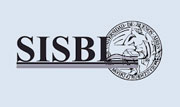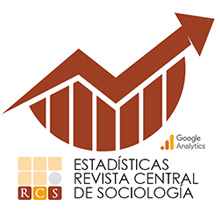Post-verdad, sesgos, transferencia y pensamiento crítico
Palabras clave:
post-verdad, sesgos metodológicos, transferencia, pensamiento críticoResumen
En este texto se abordan problemas diversos de los que adolecen las definiciones, la pedagogía y las implementaciones programáticas del ámbito del pensamiento crítico. Con este propósito se analizan cuestiones que acaparan la literatura divulgatoria y las dinámicas mediales, diagnósticos inspirados desde diversas perspectivas como la psicología cognitiva, el sesgo cultural de un monto significativo de investigación, algunas experiencias prácticas en diferentes zonas del planeta, y temas asociadas a la transferencia desde los ambientes educativos a las realidades sociales. Se proponen, en fin, abordajes alternativos para estas problemáticas.
Descargas
Métricas
Citas
Arnett, Jeffrey J. (2008). “The Neglected 95%. Why American Psychology Needs to Become Less American”. American Psychologist Vol. 63 (7), 602-614.
Aronson, Elliot (2000). El animal social. Madrid: Alianza Editorial.
Bacon, Francis (1949). Novum Organum. Buenos Aires: Editorial Losada.
Beaulac, Guillaume and Kenyon, Tim (2018). “The Scope of Debiasing in the Classroom”. Topoi 37, 93-102.
Bourdieu, Pierre (1999). Meditaciones pascalianas. Barcelona: Editorial Anagrama.
Correia, Vasco (2018). “Contextual Debiasing and Critical Thinking: Reasons for Optimism”. Topoi 37, 103-111.
Delbanco, Andrew (2009). ¨The Universities in Trouble¨. The New York Review of Books, April 15 Issue.
Descartes, René (1641). Meditaciones Metafísicas.
Gelertner, David y otros (2016). C@mbio. 19 ensayos fundamentales de cómo Internet está cambiando nuestras vidas. Madrid: BBVA OpenMind.
Gilovich, Thomas (2009). Convencidos, pero equivocados. Guía para reconocer espejismos en la vida cotidiana. Barcelona: Milrazones.
Hachter, Donald L. (2013). “Is critical thinking across the curriculum a plausible goal?”. OSSA Conference Archive, 69.
Haidt, Jonathan (2019). La mente de los justos. Por qué la política y la religión dividen a la gente sensata. Barcelona: Editorial Planeta.
Halffman, Willem and Radder, Hans (2015). ¨The Academic Manifesto:From an Occupied to a Public University¨. Minerva 53, 165-187.
Hegel, G. W. F (1994). Lecciones sobre la filosofía de la historia universal. Barcelona: Editorial Altaya.
Henrich, Joseph; Heine, Steven J. and Norenzayan, Ara (2010). “The weirdest people in the world?”.Behavioral and Brain Sciences 33, 61-135.
Johnson, Ralph H. and Hamby, Benjamin (2015). “A Meta-Level Approach to the Problem of Defining ‘Critical Thinking’”. Argumentation 29, 417-430.
Kaufman, Allison B. and Kaufman, James C. (2018). Pseudoscience. The conspiracy against science. Cambridge, MA: The MIT Press.
Koyré, Alexandre (1999). Del mundo cerrado al universo infinito. Madrid: Siglo Veintiuno Editores.
Levitin, Daniel J. (2016). Weaponized Lies. How to think critically in the Post-Truth era. New York: Dutton.
Lilienfeld, Scott O. (2018). “Foreword: Navigating a Post-Truth World: Ten Enduring Lessons from the Study of Pseudoscience”. En Allison B. Kaufman and James Kaufman, 2018.
Lilienfeld, Scott O., Ammirati, Rachel and Landfield, Kristin (2009). “Giving Debiasing Away. Can Psychological Research on Correcting Cognitive Errors Promote Human Welfare? Perspectives on Psychological Science, Volume 4 (4), 390-398.
Lim, Leonel (2011). “Beyond logic and argument analysis: Critical thinking, everyday problems and democratic deliberation in Cambridge International Examinations’ Thinking Skills curriculum”. Journal of Curriculum Studies 43 (6), 783-807.
Lim, Leonel (2012). “Ideology, class and rationality: a critique of Cambridge International Examinations’ Thinking Skills curriculum”. Cambridge Journal of Education, Vol. 42 (4), 481-495)
Mcintyre, Lee (2018). Post-Truth. Cambridge, MA: The MIT Press.
Mercier, Hugo and Sperber, Dan (2017). The Enigma of Reason. A New Theory of Human Understanding. UK: Allen Lane Books.
Nussbaum C., Martha (2010). Sin fines de lucro. Por qué la democracia necesita de las humanidades. Buenos Aires: Katz Editores.
Otero, Edison y Herrera, Lisa (2016). ¨Critical Thinking: from the naive optimism to the reasonable realism¨. Cogency, Journal of Reasoning and Argumentation, Vol. 8, Nº 1, 69-87.
Palluck, Elizabeth Levy and Green, Donald P. (2009). “Prejudice Reduction: What Works? A Review and Assessment of Research and Practice”. The Annual Review of Psychology 60, 339-67.
Sellars, Maura et al. (2018). “Conversations on Critical Thinking: Can Critical Thinking Find Its Way Forward as the Skill Set and Mindset of the Century?” Education Sciences 2 (205).
Sen, Amartya (2008). Identidad y violencia. La ilusión del destino. Buenos Aires: Katz Editores.
Slingerland, Edward and Collard, Mark (edit.) (2012). Creating Consilience. Integrating the Sciences and the Humanities. New York: Oxford University Press.
Thagard, Paul (2013). “Pensamiento crítico y lógica informal: algunas perspectivas neuropsicológicas”. Mesa Redonda, n° 7, 7-25.
Tishman, Tishman (2002). “Valor Agregado: Una perspectiva disposicional del pensamiento”. Mesa Redonda N° 1, 3-10.
Watermeyer, Richard and Olssen, Mark (2016). ¨Excellence and Exclusion: The Individual Costs of Institutional Competitiveness¨. Minerva 54, 201-218.
Willingham, Daniel T. (2007). “Critical Thinking. Why Is It So Hard To Teach?”. American Educator, Summer, 1-11.
Weiner-Levy, Naomi (2008). “Universities as a meeting point with new academic knowledge, society and culture: cognitive and emotional transitions during higher education”. Cambridge Journal of Education, vol. 38 (4), 497-512.


















